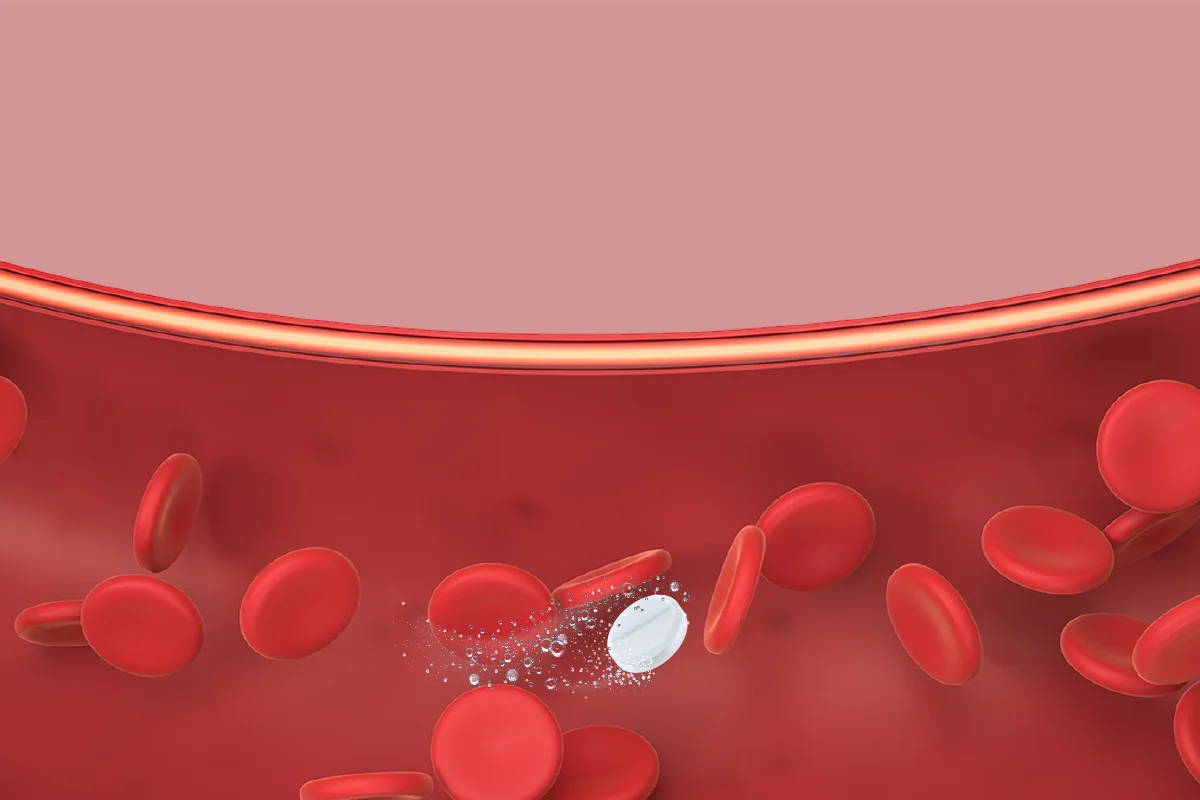Blood is the life fuel that helps to keep the organs fully functional. In an very common language of daily life if the oil or fuel of the car becomes rigid or gets clotted the engine and car will not be able to perform and thus will require to take measures to make it flow through smoothly.
The same example lies in human body and to decrease blood clotting medicines are well used to keep the flow smooth and avoid ER situations.
Anticoagulants are blood thinner medications; they have chemicals that prevent or reduce blood coagulation and elongate the clotting time. Anticoagulants are used in treating disorders where the risk of blood clotting is increased to diminish the risk, such as thrombotic disorder, myocardial infarction (heart attack), hip or knee replacement surgery, atrial fibrillation, deep vein thrombosis (DVT), and unstable angina.
Anticoagulant medications come in various forms, like tablets, capsules, and injections. These are also used in medical equipment such as blood transfusion bags, heart-lung machines, sample tubes, and dialysis equipment.
Here arises the question of your interest: is aspirin an anticoagulant? Read the full blog and know your answer. (Healio)
Is Aspirin An Anticoagulant?
Platelets are the small cells in the body that form clots and stop bleeding. If these platelets stick together, they form blood clots in arteries that lead to a heart attack. Aspirin is an antiplatelet (not a coagulant) medicine that prevents platelets from participating in clotting.
It belongs to a nonsteroidal anti-inflammatory drug (NSAID) group used to treat severe pain, fever, and inflammation caused by rheumatoid arthritis, osteoarthritis, and antithrombotics and also used for other arthritis pain also for headaches too. Prostaglandins are the natural chemicals in our body that enhance pain, inflammation, and fever. The drug performs its mechanism by inhibiting the production of prostaglandins.
Aspirin is the best painkiller but is not a blood thinner medicine. It only makes it harder for blood to get thicker and form clots.
Anticoagulant vs. Antiplatelet
Anticoagulants and antiplatelet medications differ from each other. They work for the same purpose but in different ways. Anticoagulants work directly or indirectly by reducing actions of clotting factors that lead to blood coagulation. Meanwhile, antiplatelet medicines perform their job now on platelets. These medicines don’t allow platelets to play a role in the clotting process.
Dose of Aspirin
There is a suitable dose of aspirin that a patient should take to prevent the thickening of blood while treating the disorders mentioned above. The usual dose for mild pain is 300-500mg twice a day. 500mg or 650 mg is prescribed twice a day for treating inflammation. The patient can stop heart attacks by taking 75, 81, or 100mg daily (doctors will tell the time according to the condition). You should take these doses to dissuade other diseases.
Is Aspirin Prescribed For Blood Clots & Chest Pain?
Not all chest pains are symptoms of heart attacks and strokes, but some are due to heartburn, asthma, and muscle sprains. In such conditions, aspirin is prescribed by doctors for thinning the blood. The following symptoms should be considered before taking aspirin in chest pain situations:
- Tightness, pressure, aching and squeezing of the chest.
- The pain spreads to the back, arm, shoulder, neck, jaw, and upper abdomen
- Nausea, vomiting, and indigestion problems
- Shortness of breath and dizziness
Sweating
In cases of removing blood clots, many years ago, aspirin 81mg was used in patients with heart attacks and strokes. It was considered that a high dose of aspirin could cause high blood pressure rather than removing blood clots, but nowadays, aspirin is no longer used for removing blood clots.
Side effects Of Anticoagulant
Anticoagulant medicines can cause severe and common side effects if taken in larger quantities or without care. The common side effect caused by aspirin is fatal bleeding, while other common side effects are:
- Headache and feeling lethargic
- Abdominal pain
- Drowsiness
- Fever
- Various degrees of bleeding
- Nausea and diarrhea,
- Hair loss,
- List of other serious side effects include:
- Tissue necrosis
- Anemia and hepatitis
- Cholesterol emboli syndrome
- Calciphylaxis
- Hypersensitivity reaction
- If you mix medicines like prednisone and aspirin gut side effects occurs
Stop taking aspirin if you face any of the side effects and immediately seek medical help because these can lead to other medical problems that take a long time to recover from.
Patients Who Shouldn’t Take Anticoagulants
Anticoagulant drugs are not for every patient with certain diseases as they increase the risk of bleeding and worsening disorders. Such conditions are
- Hemophilia
- Pregnant Women,
- Tumors in the brain or high risk of bleeding in the brain
- Dissecting aorta,
- Pericarditis,
- Active ulceration,
- Undergoing any surgery
- Pericardial effusion
So do not take aspirin or any other anticoagulant if you already have any of the above disorders or have had them in your health history.
Do Anticoagulants Lower Blood Pressure?
Studies have shown that aspirin as an anticoagulant (lower doses such as 81 and 100mg) does not affect blood pressure. Also, it is not a good source of lowering blood pressure. However, taking it at bedtime will make you feel dizzy. Therefore, you must accept the correct strength dose about an hour before bed. So aspirin really decreases or increases blood pressure?
Conclusion
Aspirin is used for treating many disorders, but you should take them in low doses to prevent the risk of other complications. You can take this medicine to treat various diseases, but only your doctor knows whether it suits you. So talk to your doctor before taking aspirin for thinning blood or treating pain and inflammation.



 11 Jan 2023
11 Jan 2023


